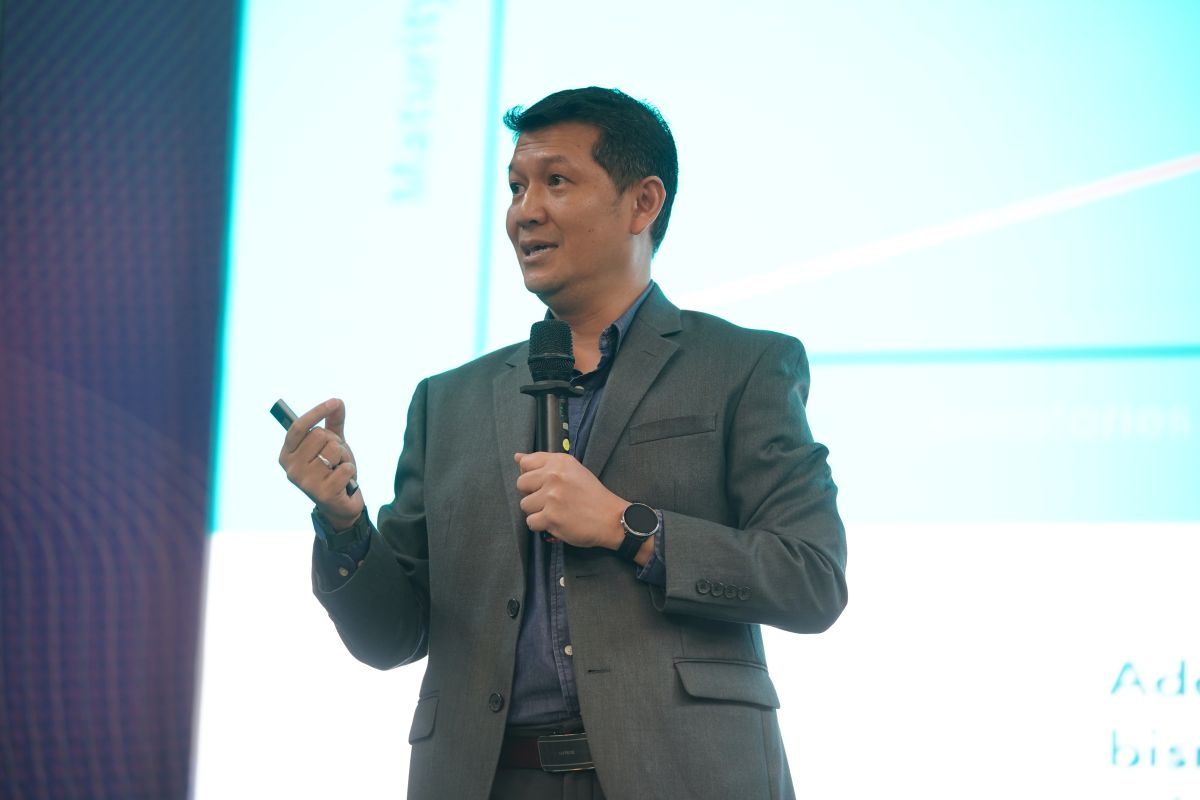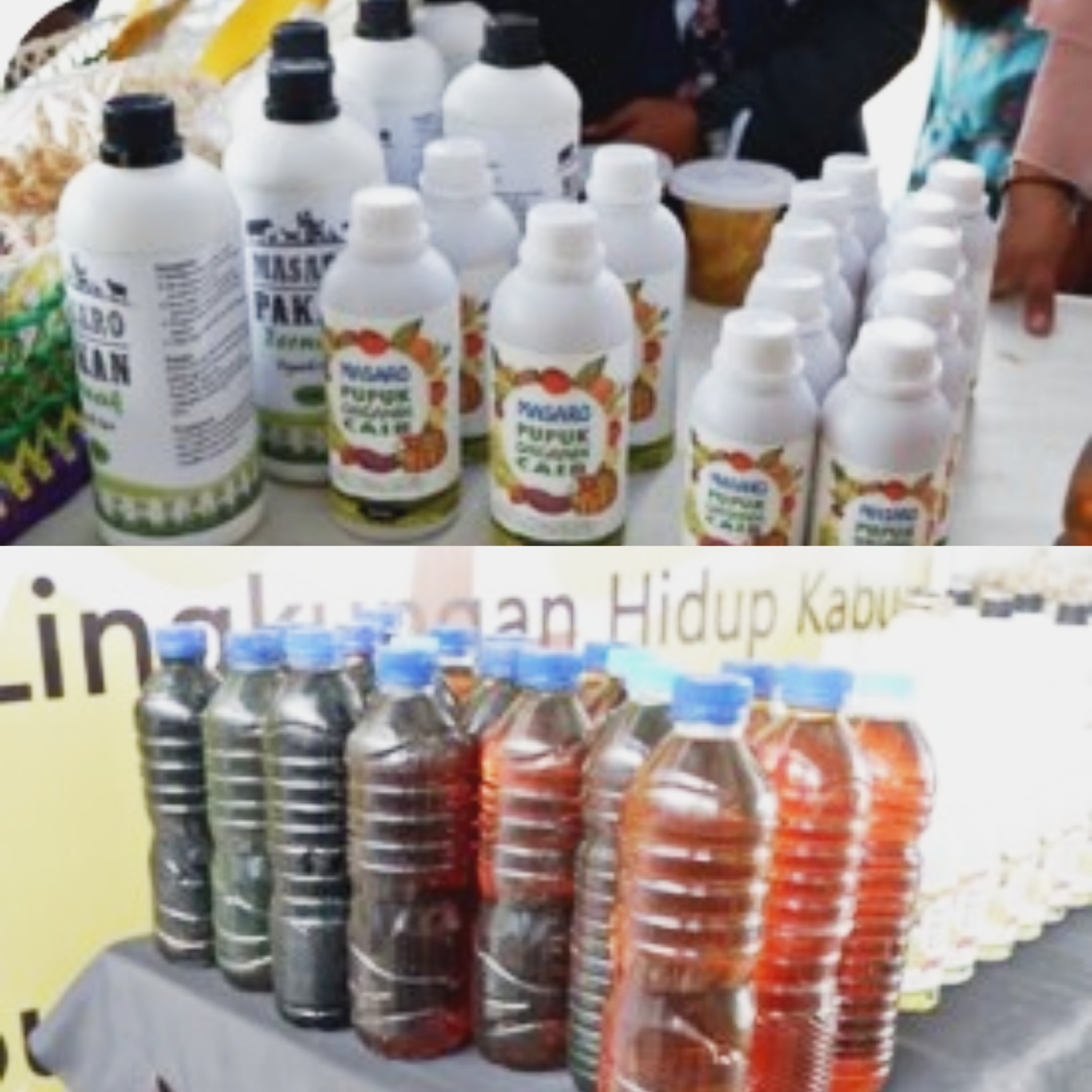Waste Barter System as Solution for Preventing River Pollution in Cinangsi Village
By Adi Permana
Editor Adi Permana

BANDUNG, itb.ac.id – Cinangsi Village in Cianjur Regency is one of the settlements that is located near the Citarum river. In recent years, Citarum river has been heavily impacted by pollution and environmental degradation. As a result, residents in those areas suffer from many issues. The ITB community service project seeks to solve some of those issues.
One of the pollution sources in Cinangsi Village is unmanaged domestic waste. The current waste management system is only capable of serving 10% of the population, while the rest of the waste are simply burned or thrown to Citarum river.
Looking at this condition, ITB intends to organize a community service project that is integrated with the government Citarum Harum program. One of the proposed programs is a waste bank with an aim of reducing the potential amount of waste that pollutes the river, while at the same time providing economic benefits to communities.
The ITB team that works on this project consists of two lecturers from the Air and Water Management Research Group, Faculty of Civil and Environmental Engineering (FCEE), Dinda Annisa Nurdiani, M.T., and Dr. I Made Wahyu Widarsana, and three students from the Environmental Infrastructure Engineering Study Program. The students’ involvement is a part of the Merdeka Belajar program.
To begin this community service program, the ITB team held a visit to several other waste banks in Bandung and Jatinangor to learn more about how to build a sustainable model.
In addition to that, the team also visited the flagship waste bank of Cianjur Regency to learn about how to create handicrafts from waste materials. Through that comparative study, it was revealed that generally a waste bank has two waste exchange systems, those are waste savings and barter.
For the saving system, customers will hand their wastes to the waste bank which then will be sold to a vendor. 80% of the sale will be given to the customer in the form of savings and the rest will be used as operational fee. This system is rather easy to implement, but the downside is they need to wait before the savings can be withdrawn, this can cause them to have less enthusiasm.
The proposed waste bank model in Cinangsi Village is the barter system. To do this, an officer appointed by the RW chief will go around residents’ homes to collect wastes once every two or four weeks. Different types of waste will be sold at different prices, Rp1.000/kg for paper waste, Rp2.000/kg for plastic, and Rp3.000/kg for metal.
What’s special about this waste bank model is its reward for the exchanged waste. Residents will not be given money, but groceries of the same value. After that, the collected waste will be sold to a vendor and its profit will be used for operational fees. This model was chosen after the team held a discussion with several parties and considered its sustainable aspect.
They also visited Tegalsari Elementary School on 15 October 2022 to teach about the importance of managing waste based on its types. This event was participated in by 100 students from 5th and 6th grade. The same kind of event was also held at RW 02 using a forum group discussion platform with a topic of the waste bank that will be implemented. “They were very interested with this waste bank and most of them chose the barter model with daily groceries as its payment,” expressed Diana as the Head of the ITB team.
After the system had been agreed upon, residents held a simulation by collecting wastes on RT 01, 02, and 04. At that time, they manage to accumulate 55kg of wastes consisting of 13kg of bucket, 8 kg of cardboard, 10kg of trash, 3 kg of glass, 7 kg of PET, 3 kg of water bottle, etc. The sale of these wastes amounted to Rp156.700 and the waste bank earned a profit of Rp 51.500. The collected waste increased on the second simulation with a weight of 59,75kg, sale of Rp 166.200, and profit of Rp55.000.
“We hope that this project can increase the consciousness and the participation of local residents in managing environments, especially in waste management,” concluded Dinda.

*This article has been published on Media Indonesia Rekacipta ITB rubric on 7th March 2023 Edition, the complete article can be read at https://pengabdian.lppm.itb.ac.id
Reporter: Sekar Dianwidi Bisowarno (Bioengineering, 2019)
Translator: Favian Aldilla R (Civil Engineering, 2019)



.jpg)

.jpg)


.jpg)